#daimler
Mercedes Spending $59 Million to Build ESprinter in U.S.
On Tuesday, Mercedes announced it would be pouring roughly $59 million (€50 million) to build the all-electric Sprinter van at three facilities. One of them will is the American MBV factory in Ladson, South Carolina, with the remaining two sites naturally situated in Düsseldorf and Ludwigsfelde, Germany.
Over 200,000 Sprinter and Metris model vans have been assembled in the United States since 2006, though the automaker had actually been using the state to avoid the chicken tax for much longer. Considering the region is the second-largest market for Sprinter vans, Mercedes is not interested in dissolving its American commitments either. The investment will be spread across the three facilities for the necessary tooling to build the EV variant the automaker already started selling in Europe.
Judge Approves Daimler AG's $1.5 Billion Diesel Emissions Settlement
On Tuesday, a federal judge approved a $1.5 billion settlement to pump the brakes on an investigation conducted by the U.S. government pursuing claims that Daimler used illicit software that allowed excess diesel emissions on 250,000 units. This runs in tandem with another $700 million settlement the automaker is making with vehicle owners, which is likely to see final approval in a few months, and an extensive recall campaign.
The federal case involves the U.S. Justice Department, the California Air Resources Board, and follows a trend of fines for automakers accused of misleading regulators so that diesel vehicles could continue being sold. This kicked off with Volkswagen’s Dieselgate in 2015, with numerous government probes taking place in Europe and North America over the next five years. Many automakers have since been discouraged from relying on diesel powertrains due to rising regulatory actions. European countries that once championed the fuel as ecologically preferable to gasoline, after the advent of biodiesels, are now obsessed with tamping down NOx emissions and getting more electric vehicles onto the road.
Daimler Is Just Going to Be Mercedes-Benz, Says CEO
Daimler had decided some serious changes need to be made before the end of 2021, including a name swap and separate listing for its commercial truck division. While the reason given was to better facilitate the company’s transition toward a “zero- emissions and software-driven future,” investors have been critical of Daimler’s share price after it cratered in March of last year. Though we would argue the bigger concern is the automaker’s lackluster (or absent) growth and declining revenue since 2018.
Regardless, CEO Ola Källenius believes continued changes to the firm’s corporate structure are the only way to go. By 2022, Daimler will simply be known as Mercedes-Benz and have spun off Daimler Trucks with its own listing on the Frankfurt stock exchange.
Mercedes Reportedly Shipping the ESprinter Stateside in 2023
Mercedes-Benz is reportedly planning to bring an electric commercial van, presumably the eSprinter, to the United States as early as the third quarter of 2023. While the all-electric van launched earlier this year in Europe, the manufacturer said it wanted to hold off on North American exports for reasons that should be obvious to anybody familiar with the industry. The model’s rather low range (up to 96 miles, depending on load and route) makes it a poor fit for North America’s wide-open spaces, as does its standard 75 mph (or optional 50 mph) top speed. Meanwhile, the necessary homologation efforts required to sell the eSprinter in the U.S. would only increase the price of a vehicle already ill-suited to the nation’s roadways.
Were it to come here now, we’d be looking at a cargo van with an MSRP dangerously close to $60,000 and the top speed and range of a small-displacement dirtbike. Regulatory incentives aside, it doesn’t seem like a worthwhile addition to the North American landscape. But analysts are worried that Mercedes-Benz needs to get a move on and ensure the vehicle comes to the U.S. market before it’s edged out by the competition. It’s a position we’d be inclined to agree with had the eSprinter arrived with more robust specifications.
Reinventing the Wheel: Daimler Intentionally Becoming a Smaller Company to Facilitate Tech
Daimler Chairman Ola Källenius went against the grain on Thursday by admitting the company he’s been tasked with overseeing will become significantly smaller in five years. That’s normally not the kind of thing you want to telegraph to shareholders via the media but he’s convinced this is the best course of action for the business.
“The next five years we will become a smaller company,” Källenius told Reuters. “We will have a fundamental change in the industrial footprint on the powertrain side.”
The future of Daimler apparently involves a half-decade metamorphosis into a services-focused software company that just so happens to build vehicles. But the vehicles won’t be those internal-combustion jobs that you grew up around. Instead, they’ll be hyper-efficient electrics from Mercedes-Benz as it re-imagines luxury within the strict confines of environmental sustainability. As a byproduct, Daimler will need fewer employees to help manufacture automobiles.
BMW Considers Joint Mobility Venture With Daimler
Despite every manufacturer on the planet eager to inject mobility services into the business, the array of programs that encompasses has yet to establish itself as a reliable source of revenue. Frankly, the whole thing seems like a gigantic money pit for the industry made worse by how loosely the term is defined. Customer data acquisition, vehicle connectivity, electrification, subscription programs, over-the-air updates, and autonomous driving all fall under the umbrella of “mobility” that’s costing automakers a bundle with the promise of being profitable later.
This week, BMW CEO Oliver Zipse acknowledged the premium his company has had to pay to maintain such programs and that it’s considering a joint venture with Daimler AG to help mitigate cost. This would presumably expand the German-based Free Now car-sharing program they already share — though BMW was cagey on the details.
Fancy Forward: Mercedes-Benz Can No Longer Cater to Plebs
Mercedes-Benz looks poised to retreat from high-volume compacts. During an online corporate strategy meeting held on Tuesday, Daimler CEO Ola Källenius indicated that the luxury subsidiary may have overextended itself.
“Maybe we went at a bit too far to cover each and every space into each and every segment. Compact particularly comes to mind,” he explained. “This is not where the main thrust should go, we should not become a competitor of the volume makers.”
But the company only has itself to blame for that. Around a quarter of the brand’s annual sales come from compact vehicles and they’ve been taking up a larger share of its product portfolio. Källenius seems to think Mercedes has done enough to broaden its appeal and need to refocus on higher-end vehicles with better margins. “Our [current] strategy is designed to avoid non-core activities,” he said, adding that funds will be prioritized for more profitable products.
“We’re not chasing volume, we’re targeting profitable growth.”
Mercedes-Benz Abandons Manual Transmission, Sticks With Streamlining
As the manual transmission gradually joins the wheel-mounted throttle lever in the automotive history trash bin, we’ve been wondering which manufacture would be the next to take a bold stance against be-clutched vehicles. Today we have our answer, thanks to a tweet explaining the brand’s research boss had indicated Mercedes-Benz doesn’t have room for manuals in its current restructuring program.
“The head of @MercedesBenz’s R&D operations, Markus Schaefer, has confirmed the company will ‘eliminate manual transmissions’ as part of cost-cutting initiatives that will also see a ‘substantial reduction in platforms’ and a ‘very dramatic reduction in combustion engines,'” automotive journalist Greg Kable explained via social media on Tuesday.
Daimler Agrees to Pay $2.2 Billion Diesel Emissions Settlement
Daimler has officially agreed to pay $2.2 billion as a resolution to the United States’ diesel emissions cheating investigation and over 250,000 claims from Mercedes-Benz customers. The automaker stated that it was likely going to settle in August, estimating a need to set aside roughly $1.5 billion to appease U.S. authorities. Another $700 million was earmarked for civil suits, with the company assuming millions more would be needed to fulfill the requirements of the various settlements.
Court documents shared by Reuters show the company agreeing to pay 250,000 owners up to $3,290 each on vehicles that exceed regulatory emissions standards through the use of emissions cheating software. It also decided against opposing spending $83.4 million in attorney fees and expenses for the owners’ legal representation — something Volkswagen called “unwarranted” in a similarly sized suit where the attorneys were only asking for $59 million. However, VW’s emission woes have remained obnoxiously persistent since 2015 and have cost it well over $40 billion.
By contrast, Daimler is getting off with a slap on the wrist by settling for just a couple billion smackers. Although the likelihood of further criminal action remains relatively high in both the United States and Europe. Keep in mind that it took prosecutors nearly five years just to get this far and governments around the globe are disavowing diesel vehicles as if they appeared in a group photo on Jeffrey Epstein’s private island.
Mercedes-Benz E-Class Family Updated for 2021, Pricing Adjusted
The Mercedes-Benz E-Class is receiving a series of updates for 2021 — including some new engine options, styling adjustments, and the obligatory infotainment updates. There’s even a new lifted version called the E450 4Matic All-Terrain that’s clearly targeting fancy alternatives to the Subaru Outback (e.g. the Audi A6 Allroad).
Unfortunately, these enhancements have raised the price of the E-Class slightly. The base model E350 now starts at $55,300 (including destination), which seems a lot to ask for a 2.0-liter turbo making 255 horsepower and 273 lb-ft of torque. That’d be a juicier package inside one of Mercedes’ smaller products and opting in to an all-wheel-drive 4Matic brings the price $57,800 before you’ve even had a whiff of the 3.0-liter inline-six. But you do get Daimler’s updated MBUX software across the range and a longer list of interior material choices and styles. Though our readers seemed to really hate the interior found in the new S-Class and we’re doubting you’ll be any fonder of the wavy lines found inside the refreshed E-Class family, even if they’re not drastically different from what was available beforehand.
Daimler Promises Digital Perfection With 2021 Mercedes-Benz S-Class
The S-Class has always been the sparkling sapphire in Daimler’s crown. The model has historically offered unparalleled luxury and cutting-edge tech that gradually trickles down to the rest of the lineup. It also shows off what Mercedes-Benz is capable of when, running on all cylinders, it sets out to make the best car money can buy without crossing over into obscene extravagance. In this respect, the 2021 S-Class seems to deliver as it always does.
A little larger than its predecessor, the next incarnation of Mercedes’ finest comes in at 208.2 inches long, 76.9 inches wide and 59.2 inches tall. Its extended wheelbase and short overhangs gives it the impression of a smaller vehicle from afar, however. While the manufacturer happily suggests this allowed for an overall increase in the cabin airiness, Daimler admits the model’s technology is what’s supposed to get one salivating — and it did its utmost to make sure it’s omnipresent.
Mercedes-Benz Axes a Pair of Two-doors
Long rumored to be on the chopping block, the Mercedes-Benz S-Class coupe and cabriolet are now confirmed to be heading into their last year of existence.
The automaker confirmed the death sentence for these luxuriously large two-doors in its 2021 model year rundown, sealing the fate of yet another coupe and drop-top in the increasingly SUV-centric global auto landscape. Niche models, to be sure, but the impending loss is made all the more painful by the fact that Benz’s biggest coupe is pillarless.
Cash in Your Chips: Automakers Ask FTC to Seek Appeal After Losing Qualcomm Case
Frequently on the cutting edges of technology, the automotive industry has been slamming chips into vehicles to facilitate communications ever since General Motors launched OnStar back in 1996. This evolved into cars boasting reliable navigation systems and remote vehicle diagnostics until they literally started becoming mobile internet hot spots.
Now the industry wants to further ingrain connectivity by equipping all vehicles with 5G — opening the road for new features and the ability to harvest your personal data more effectively.
This has required deals with tech chip manufacturers like Qualcomm, which requires companies to sign a patent license agreement before actually selling any of its hardware or software. But regulators around the globe worried the practice may be monopolistic, violating antitrust laws. The Federal Trade Commission (FTC) brought a case against the business in 2017. Despite winning that case in 2019, a U.S. appeals court overturned the decision earlier this month, deciding Qualcomm could continue conducting business as usual. Now, tech companies (mainly Qualcomm rivals) and a gaggle of automakers are urging the FTC to seek an appeal following the loss.
Lone Sprinter: Daimler to End Freightliner Badge Job
Mercedes-Benz’s Sprinter commercial van has worn several badges, but come the end of next year, there’ll be only one. As the automaker works to slim down its sprawling global lineup, the lesser-known Freightliner variant will cease production.
Manufactured via knock-down kits in South Carolina, the Freightliner van, like Dodges of yore, will fade to black, but Sprinters will remain in the M-B stable.
Daimler Settles in American Diesel Emissions Investigation
Daimler reached an agreement this week to settle U.S. proceedings related to an investigation into software that’s presumed to cheat diesel emissions tests. While not an admission of guilt, it’s going to cost the company a sizable $1.5 billion — which is a lot to spend on a simple misunderstanding.
After Volkswagen Group admitted to using engine management software designed to falsify emission testing data, there has been a target panted on the back of every other company operating within the auto industry. If VW could get away with such shenanigans for years, there’s reason to believe other carmakers may have engaged in similar behaviors.




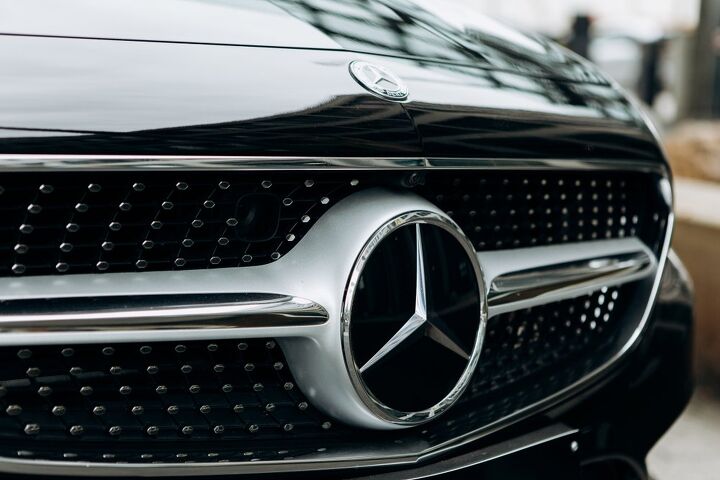
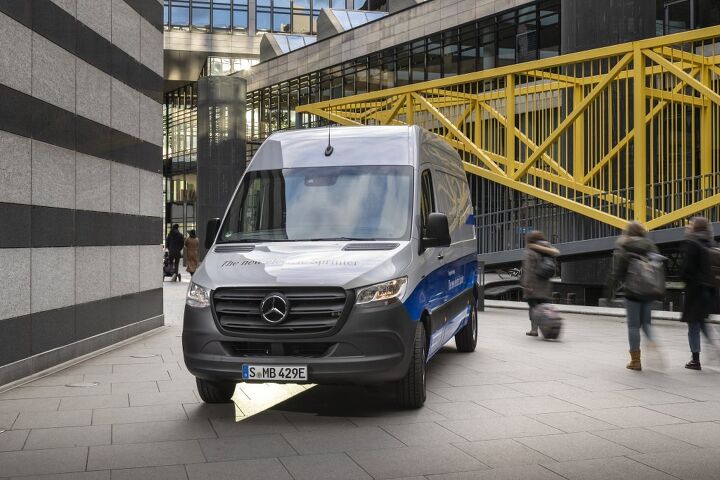




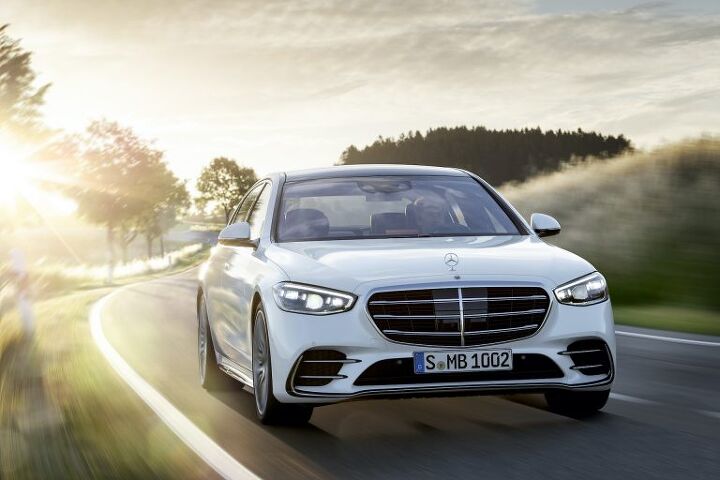
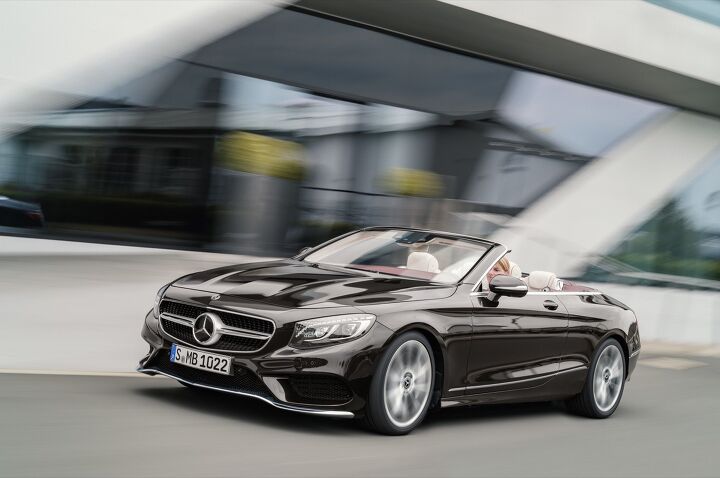
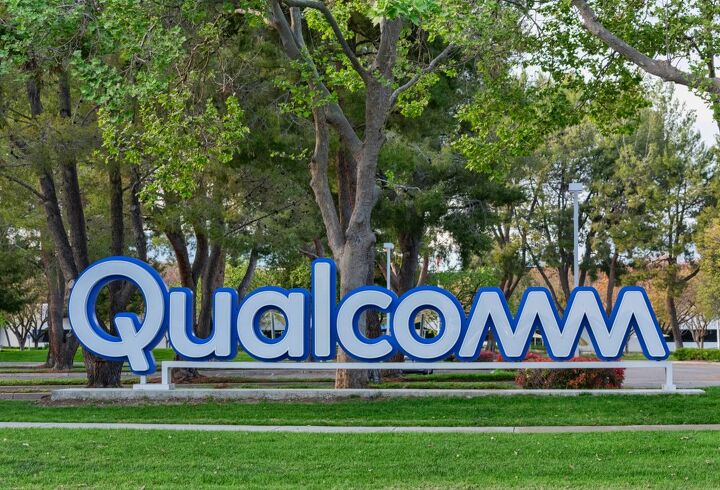













Recent Comments